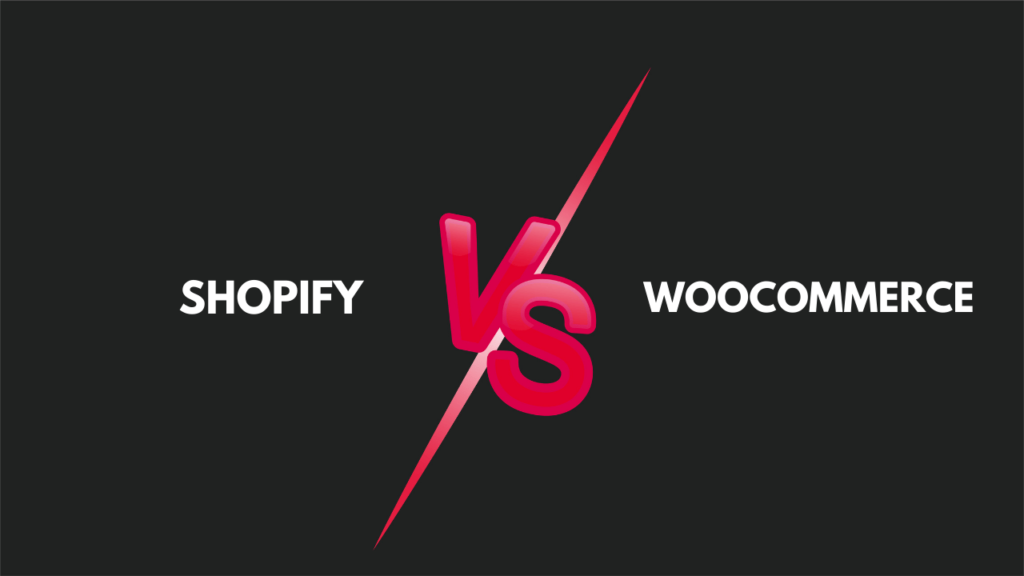Introduction to Choosing Your E-Commerce Platform
Choosing the right e-commerce platform is crucial for any entrepreneur aiming to launch or expand an online store. Among the myriad of options available, the decision often boils down to two major players: Shopify and WooCommerce. In this comprehensive guide, we will dive deep into the Shopify vs WooCommerce debate, exploring each platform’s features, benefits, and a strong following of successful users. Whether you’re starting from scratch or considering a switch, this detailed comparison will arm you with the essential knowledge to make an informed choice that best suits your business needs and supports your growth. Join us as we dissect the pros and cons of Shopify vs WooCommerce, paving your path to e-commerce success.
Table of Contents
Understanding Shopify: Features and Benefits
Shopify is a well-designed e-commerce solution that has comprehensive functionalities that help businesses of any scale create, run, and quickly develop an online store. One of the biggest reasons this platform became so robust is its simplistic dashboard. This enables anyone without a technical background to set up a store without coding skills. Shopify hosts your website and provides many custom templates so your store looks professional and reflects your brand identity. It also comes with a collection of built-in tools that can help in hosting numerous business operations, including but not limited to inventory management, payment processing, and shipping.
Another significant advantage is its robust security features. The platform is integrated with SSL certificates and PCI compliance to secure all transactions and protect customer data. Integration capabilities in Shopify are immense, allowing users to power up their store with many apps and plugins available through its marketplace. This allows one to use it for features like email marketing, loyalty programs, and customer review systems. With a range of plans, Shopify’s pricing model caters to different budgets and business levels, thereby providing access even to startups, with a higher level of scalability available to already established businesses. Additionally, Shopify provides its customers with 24/7 customer service support and a vast community of users and developers who can help and impart their knowledge. These powerful features and benefits make Shopify a strong option for anyone willing to get online fast and grow their business even further.
Exploring WooCommerce: Features and Benefits

WooCommerce is a robust and extendable e-commerce plugin that attaches integrally to WordPress and is ideal for users who are habituating to the popular content management system. Where Shopify lacks, WooCommerce comes in as a winner. As an open-source platform, there are no limits to flexibility and the extent to which one can customize things. Every bit of the store can be changed, and functionalities can be extended using plugins and custom code. This makes WooCommerce handy for businesses that have to do more than just offer out-of-the-box offerings from a hosted platform.
In fact, one of the most significant benefits of WooCommerce is that it’s very cost-effective. The plugin is free, and many addons necessary for basic functioning come with no additional charge. That goes a long way in removing prohibitive entry costs for new businesses or those wanting to keep their costs to a minimum. However, although there may be little of an immediate outlay, there might be later if themes, plugins, and development are weighed down by heavy customization. WooCommerce shines the most through its integration, especially regarding SEO and content marketing concerning its WordPress roots. WordPress is recognized for its advanced features, among which SEO is prominent. Therefore, WooCommerce stores have excellent SEO capabilities, making businesses more available in search engine results. Also, what goes with being a part of the WordPress ecosystem is the availability to benefit from the giant array of WordPress plugins and themes, thereby increasing functionality and aesthetics.
Shopify vs WooCommerce: Ease of Use Comparison

Undoubtedly, the ease of use of Shopify and WooCommerce is among the deciding factors for countless business owners, most notably those with an overwhelming dearth of technical skills or resources required. Its operational support is admirable. It holds solutions capable of operating with elementary interface structures and does so straightforwardly. Among its advantages, the most common rehashed is that Shopify takes over most of the tasks like hosting, security, and updates, which means less workload for the store owner. The platform’s setup process is straightforward and easy, and users have direct control over different wizard-led configurative phases of the platform that let them rapidly open their online store. Thus, the platform’s simplicity made it easy for users to do almost everything. The insignificant parts involve launching one’s online store, making Shopify one of them, which, in this case, applies to those who wish to concentrate more on the business than the technical details.
On the other hand, based on the self-hosting concept of a company that offers a WooCommerce plugin, the course taken there might differ slightly from that on Shopify. As a self-hosted WordPress plugin, it requires more time to set up than Shopify. Subscription to a managed hosting service will enable users to have their safety and malware detection done. Besides, they must also be aware that security updates are available to install and make their websites less vulnerable. Nonetheless, after that, it comes with deep integration with WordPress and thus provides a flexible and potent extensible capability that can be configured with the admin per the various unique business needs. On the one hand, the learning process may be complicated for some beginners; on the other hand, you can have complete control over how to show your website, add custom functions, and do different things that people who are used to working with WordPress will find very comfortable.
In general, Shopify might be more convenient for users looking for a complete, carrot-free solution, while WooCommerce is best for those keen on having more control and experienced ones in charge of the technical setup of WordPress. The decision rests on whether you are comfortable using technology and your goals regarding the website.
Pricing Models: Shopify and WooCommerce Face-to-Face
Pricing has been a vital point in the discussion of Shopify and WooCommerce. Shopify functions on a subscription basis with four tiers: Basic, Shopify and Advanced, designed for small to large-scale businesses like yours and mine. Taking these plans as an instance- each contains a variety of capabilities and features, starting with the simplest and progressing to the advanced. Furthermore, each plan provides web hosting, security, and customer support from Shopify, which is worth the higher one-time costs. Further, Shopify costs a transaction fee unless you use Shopify Payments, and you need to pay extra for third-party apps or premium themes.
Unlike Shopify, a WordPress plugin, WooCommerce is a free addon. However, this free plugin may require additional costs such as web hosting, domain registration, SSL certificates, and paid plugins for specific needs. This discloses the issue of the seriousness; that is to say, WooCommerce might be cheaper than merchants think if they cut down on the extra requirements, such as applications for the various tools and features they plan to use.
Cost can be the critical factor influencing your choice between Shopify and WooCommerce regarding pricing. The most significant criterion for selecting either Shopify or Woo for your business would be your business model, budget, and whether you can handle its technical aspects. Shopify might attract those who prefer a stable monthly cost with fewer technical activities. On the other hand, WooCommerce may require a lesser startup cost, which may mean that it needs more human input in the form of an increase in overhead as customer needs grow.
Customization Capabilities: Which Offers More Flexibility?
The tailor-made solutions enable online retailers to build a store and make the products they intend to sell stand out and satisfy the client’s specific requirements. Shopify gives access to different designs and shootings. Therefore, the user has the liberty to choose any feature they like. These templates not only support creating a professional image website for the shop, but their customization is also limited to only two types of Liquid codes available in the clean Shopify marketplace. Thus, as far as coding is concerned, visual tools such as PageFly are the solutions that can work for Shopify users besides those who need to become more familiar with coding being restricted to the options provided in the App Store.
WooCommerce is rated highly for being personalized personalized because it is open-source software. It is associated with the WordPress platform, known for its high degree of customization. Through site integrations, users can select from a wide array of styles and plugins, either free or paid for, allowing them to change the look and performance of their store. Also, website owners can create and change store codes or even ask WooCommerce to create custom software to make processes smoother.
Security Aspects: Ensuring Safe Online Transactions
The all-inclusive nature of the internet increasingly increases the need and popularity for high-level security. Security not only affects the reputation of your company, but it also determines the level of trust your customers hold in you. Different from each other, Shopify and WooCommerce adopt measures to provide security, each with its own plus points. Shopify is a PaaS (platform-as-a-service) hosting that is a heresy to multi-tenant hosting and is the first to suggest adopting cloud hosting to all clients. It is the conductor of the automatic checks and the issuing of SSL certificates for Secure Socket Layer penetration. Therefore, clients will be securely redirected to the site. Among the benefits of a Maintenance Service contract is the automatic updating function of the website that controls security, closes all holes, and fixes all bugs.
While engaging more freedom, WooCommerce also requires a more proactive security management approach. Being a self-hosted platform, the security of a WooCommerce site mainly lies in the store owner’s hands. These tasks include keeping WordPress, WooCommerce, and any other plugins used up to date, getting secure web hosting, and enabling an SSL certificate. When choosing WooCommerce, employees will have to take more responsibility to keep the site safe, and therefore, they will have more freedom to install security utilities and up-to-date methodologies.
Scalability: Preparing for Your Store’s Growth
“Scalability” is a big issue for e-commerce platforms of any type, as the platform you choose should be capable of accommodating growth and changing business needs. Shopify is considered one of the best scalable platforms as it is hosted. That means that the platform takes care of the technical aspects of scalability (like traffic management and feature addition) and implements the necessary code in July to make the Lighthouse score higher. Shopify’s pricing plans for different needs and growth options for companies are provided to businesses so that they can scale their operations without any problem, which involves using tools such as advanced reporting and better shipping conditions.
You must use SEO- search engine optimization optimization to increase traffic and sales to your shop. Shopify and WooCommerce have potent tools to help you optimize your site correctly, but they do it in different ways. Shopify has included some prebuilt SEO functions meant to be used right out of the box, e.g., a sitemap made automatically, editable title tags and meta descriptions, and SEO-friendly URLs. However, the Shopify platform also has some restrictions, like excellent URL structures and limited access to some SEO settings, which is a downfall for intricate SEO strategies.
The WooCommerce, combined with WordPress, has an excellent reputation for its SEO advantages. WordPress is a built platform that keeps SEO in mind, covering the large areas where one can use each SEO possibility properly. Among these, WooCommerce lets you use some of the best SEO plugins, such as Yoast SEO, for advanced SEO practices, editing the most in-depth settings of every specific file, post, and product list. This is the potential that comes with superior SEO customization and optimization over Shopify while keeping in mind that it might be necessary for the user to spend time and effort using these tools properly.
Support and Community: Access to Help and Resources
Support and community access are essential for problem-solving, learning, and business development. Shopify features a flexible, 24/7 support system, which can be used for lines such as chat, phone, and email. Such solutions enable users to gain assistance, which is especially important at critical times. Furthermore, Shopify has a library of knowledge and tutorials and conducts community forums, which allow users to study at their own pace. In addition, the Shopify community is active and allows new users to join a network of experienced merchants and partners who can offer advice and share experiences.
WooCommerce, an open-source platform, depends mainly on its community for support. It may not offer particular user support in a standard way, but a big community of users and developers create forums, blogs, and online groups. WooCommerce users can find guidance and community support through WordPress forums and third-party websites. For direct help, most businesses approach specialized specialized developers or agencies offering paid support and troubleshooting.
Real-World Case Studies: Success Stories from Shopify and WooCommerce Users
Understanding actual case studies of triumphant online stores operating Shopify and WooCommerce can present beautiful insights into the possible scenario in our business. Shopify has demonstrated huge success stories from a wide range of industries. These narratives generally feature how companies can use Shopify’s solutions, which are both integrated and quick to operate, to scale up and attract a wider audience. For example, many of Shopify’s clients have managed to engage in global trading without doing any major overhauls of the apps already provided in their local markets.
WooCommerce also profiles many success stories, notably from customers with non-standard business models or those requiring unique solutions not offered by big platforms like Shopify. These stories mainly back WooCommerce’s dynamic aspect, which includes companies developing several custom plugins and other adaptations to meet their niche market needs or to attract and incorporate complex operations.
Both Shopify and WooCommerce contain incredible instances of success that can become a motivating force. They also furnish practical tips on shaping, scaling, and rectifying your online shop according to their achievements in diverse markets.
How to Decide: Factors to Consider Before Making a Choice
Choosing either Shopify or WooCommerce is not only a function of being versatile. For any business undertaking, various other factors are imperative for the business to perform according to specific needs. See more than one of the following:
Technical Skill: Shopify, on the other hand, removes the technical aspect of the business operation and leaves the sellers with minor technical skills or none at all when it comes to billing, inventory, cybersecurity, etc. If you are comfortable with technical challenges and prefer more profound control, WooCommerce will be your best choice.
Budget: Analyze the startup fees plus the constant charges associated with the platform. Shopify might charge higher monthly payments, but this includes hosting and security. In the case of WooCommerce, extra costs may be incurred, such as hosting, plugins, and development.
CustomizationCustomization Needs: WooCommerce is more flexible for customization; thus, it answers more of your function-oriented requirements. However, because of the ease of use of technology and its beautiful appearance, Shopify remains the most suitable one for you.
Growth Plans: Review your growth blueprint for the long term. Shopify’s infrastructure is built for expansion, while WooCommerce might require more planning and resources when scaling up.
Support Preferences: For some companies, Shopify’s 24/7 support system may be the deciding factor, as it is necessary in situations like operating a cross-national company or needing help immediately. Although it doesn’t offer the same immediacy, WooCommerce is community-driven and provides substantial support.
Conclusion
Choosing the right e-commerce platform involves a careful consideration of your business’s specific requirements, capabilities, and growth ambitions. Shopify offers an all-in-one, user-friendly solution with robust support and scalability for those who want to focus more on business and less on tech. WooCommerce presents a highly customizable platform with strong community support, ideal for those with specific needs or who prefer full control over their e-commerce environment. By understanding the strengths and potential limitations of each platform, you can make a well-informed decision that aligns with your business goals and sets the stage for online success.
